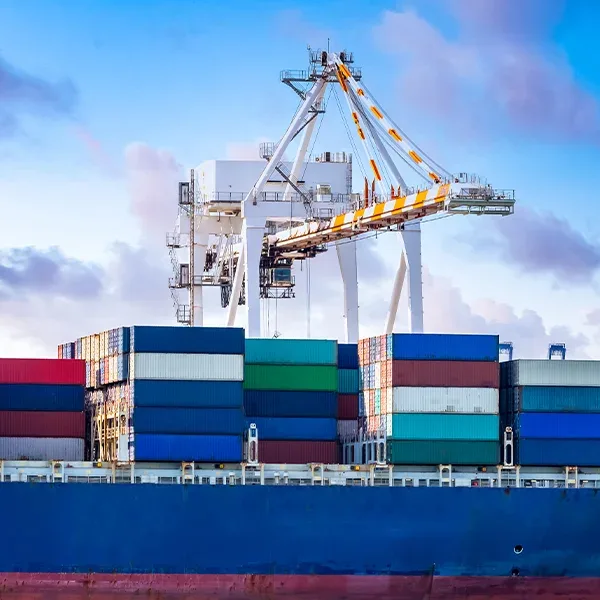What is International Maritime Transportation?
International maritime transportation refers to the transportation of goods between different countries and regions through maritime routes using ships (or other watercraft) to navigate between ports.
Classification of Maritime Transportation
Based on different modes of operation of maritime vessels, maritime transportation can be classified into Liner Transport and Shipping by Chartering.
Basic Elements of Maritime Transportation
Maritime transportation comprises three essential elements: vessels, routes, and ports.
Vessels
Ships are the primary means of transportation at sea, categorized into three main types: cargo ships, passenger ships, and combination ships. Cargo ships include general cargo vessels, bulk carriers, refrigerated cargo ships, timber carriers, oil tankers, container ships, roll-on/roll-off ships, and barge carriers.
Routes
Routes primarily refer to the pathways for maritime vessels. They are classified into scheduled routes and unscheduled routes based on time and port fixity, and into coastal routes, near ocean routes, and oceanic routes based on the range of maritime navigation.
Ports
Ports serve as nodes providing water-land connectivity, acting as gateways for international trade through maritime transportation.
Process of Maritime Cargo Transportation
The process involves consolidating goods at the export port, loading them into pre-booked cargo spaces according to stowage plans, transporting them along the designated route to the import port, and delivering them to specified locations as per port dispatch instructions, thereby completing the maritime transportation process.
Advantages of International Maritime Transportation
Large Capacity
With ships increasingly becoming larger, advancements in shipbuilding technology have significantly enhanced the carrying capacity of vessels, surpassing that of rail and road transportation.
Low Freight Costs
Maritime transport offers cost advantages due to large shipment volumes, long distances covered, lower per-ton transportation costs, government investments in ports and related infrastructure, and the prolonged use of ships. Studies show that ocean freight for one ton of cargo is only about one-fifth of rail freight and one-tenth of road freight or air freight.
Extensive Connectivity
Utilizing natural waterways, maritime transportation provides extensive connectivity, unaffected by road or rail limitations. It allows for flexibility in route selection based on changes in political, economic, and trade conditions.
Adaptability to Cargo
Ocean liners can accommodate various cargo types, including general cargo and specialized cargoes, demonstrating strong adaptability to oversized and overlength cargoes. They are also conducive to improving transportation processes to meet the requirements of international logistics, such as transporting large equipment.
Disadvantages of International Maritime Transportation
Lower Speed
Due to the large size and significant water resistance of commercial vessels, maritime transportation generally operates at lower speeds, approximately 35 knots per hour. This results in longer transit times, making it unsuitable for products or clients with high-speed transportation demands.
Higher Risks
Maritime transportation is susceptible to various risks due to the long duration of voyages, significant influence of weather and natural conditions, and occasional geopolitical shifts, posing risks to international maritime transport. Approximately 200-300 vessels encounter accidents worldwide annually.
Maritime transportation offers advantages such as low costs, broad cargo applicability, and large capacity, making it an excellent choice for international logistics. However, selecting a reputable, experienced international logistics company or freight forwarder is crucial for smooth operations. Responsible freight forwarders minimize concerns throughout the transportation process, promptly address issues, and avoid additional costs.
International maritime transportation is a vital component of global trade and logistics, facilitating the movement of goods between nations through maritime routes. With its large capacity, low freight costs, extensive connectivity, and adaptability to various cargo types, maritime transportation offers significant advantages for businesses and economies worldwide. However, it also faces challenges such as lower speed and higher risks inherent in sea travel. Despite these drawbacks, maritime transportation remains an indispensable pillar of the global economy, playing a crucial role in driving international commerce, fostering economic development, and connecting nations across the seas.
For any logistics requirements, feel free to contact us.

